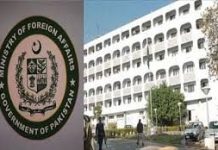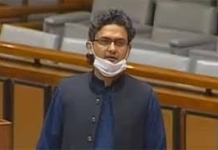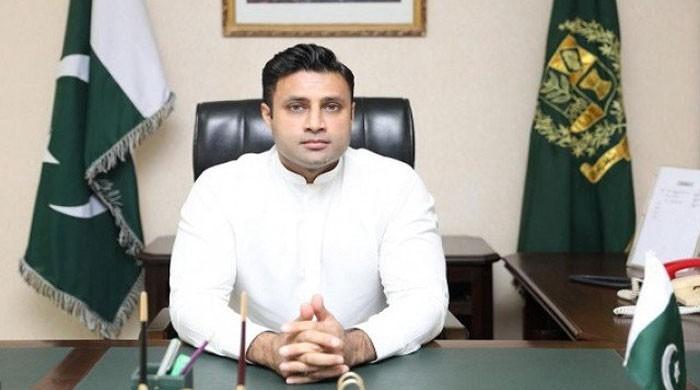مضمون کا ماخذ : quina resultados anteriores
‘Nation needs servants, not masters; bureaucracy must be de-politicised’
LAHORE: Ch Muneer Hussain Chopra is young, energetic and shinning bureaucrat serving in Pakistan Audit and Accounts Service (PAAS). He secured 53rd position all over Pakistan in Civil Superior Services (CSS) examination. The officer has wide and diversified exposure in guiding aspirants of civil services as many aspirants are landing in civil service every year […]
LAHORE: Ch Muneer Hussain Chopra is young, energetic and shinning bureaucrat serving in Pakistan Audit and Accounts Service (PAAS). He secured 53rd position all over Pakistan in Civil Superior Services (CSS) examination.
The officer has wide and diversified exposure in guiding aspirants of civil services as many aspirants are landing in civil service every year under his mentorship. He has seen all the vicissitudes in the examination conducted for government service over the period of last decade.
He got his early education from district Kasur and won laurels by becoming top position holder in Board of Intermediate and Secondary Education (BISE) Lahore.
The then president General (r) Pervez Musharraf awarded him Quaid-i-Azam Gold Medal for ‘National Talent Scholar’ on his brilliant performance e.
Hussain is a Ravian as well as Formanite and did his bachelors and masters’ degree in English literature from Forman Christian College (FCC) Lahore. He is also known for writing poetry and articles in literary magazines.
“I’ve had a balanced life – with focus on both academic and extra-curricular activities. I liked flying kites but my true passion has been cricket. Basically, a kite soaring high in the sky symbolises my aims reaching my goals,” he said.
He is of the view that CSS provides an opportunity to take part in policy-making. It also gives the prospect of movement s– both horizontal and vertical. It is a position in which one can truly serve the people of country regardless of colour, caste and creed.
Source of Inspiration- It has always been fascinating and alluring for him to become part of Civil Service as many of his family members have been serving in public sector which truly inspired him to carry the flag of serving his countrymen. This truly moved him and was his real inspiration.
On the recent disastrous result of CSS– 98% failed – he opines that majority of the candidates are seeking shortcuts nowadays as these candidates are unable to express their creativity and fail to present an analytical approach due to the mushroom growth of academies and ready-made substandard notes.
“One should focus on his creative command on English language – which is the fundamental need to pass such exam. Thorough and comprehensive reading should be encouraged as it adds to one’s argumentative ability – which shows how much understanding of a topic you have. Generic and vague answer losses credibility”, he said.
;
Reflecting from his past experience- Steadfastness, constant efforts, deliberation on diversified subjects, making one’s own notes, creativity not cramming, self-confidence coupled with determination, holding the stress and strains during exams, objective and analytical approach to attempt papers and last but not the least strong faith in God (Fate) were his forte during preparation for CSS exams.
Credit for his success- After Almighty Allah, his family deserves this credit for their endless prayers and his brothers’ uninterrupted support. His mentors – Professor Razi Abidi and former member of Federal Board of Revenue (FBR) Syed Mohsin Akhtar – mentored him with positivity and encouraged him to materialise his dream.
Is the image of a CSS officer, as perceived by the general public, true?
“Distance lends charm to beauty”
He said, “In appearance, CSS officer seems to be powerful, fascinating and successful, and enjoying all the perks under the sun but in reality it is deceptive. He does not enjoy any special perk or privilege and hardly make both ends meet. Due to poor salary structures, some officers fall prey to unfair means to keep up the appearance, which paves the way for corruption and red-tapism.”
“Reforms in the civil services are the need of the hour. It should be restructured in accordance with the changing dynamics and service delivery of civil services. Facilities to sustain a better lifestyle must be given to all the CSPs without discrimination”, he lamented.
“We are the guardians of the national exchequer”
“PAAS is the only group that has constitutional powers. Such dynamics of this service fascinated me. Article 169-171 of the constitution empowers the Auditor General of Pakistan (AGP). The AGP is a Supreme Audit Institution (SAI) in the country for ensuring public accountability and fiscal transparency and oversight in governmental operations to minimise the possibility of wastage and fraud of public money,” Hussain said – while discussing prospects and dynamics of PAAS.
Flaws in the Federal Public Service Commission (FPSC)
“It is really unfortunate to see the decay and decline in FPSC. Its decline is not even gradual, as it is more like a nosedive. Once the government gets a breathing space from the current political showdown, it should look seriously into the affairs of the public service commission. We can’t let an institution which is directly linked with the future of our youth to run in such a disorganised manner. It is simply not acceptable”, he said.
FPSC has an orthodox method when it comes to checking the papers as this outdated method has broken a lot of candidates into believing a myth ‘lady luck not the hard work decides the result of CSS’, he added.
Hussain further said there is no transparency as ‘who gets what’ is in the discretion of examiner adding that hard work becomes less important when compared to fate under such conditions. If a candidate has attempted an exam and knows what he has written, there should be no ambiguity in what he can expect in the results – but that is not true, he said.
“I have witnessed well-educated candidates including foreign degree holders, writers of leading English dailies, who have excellent command on spoken and written English, fail in English essay and composition paper for some unknown reasons”, Hussain added.
“Nation needs servants, not masters. Bureaucracy must be de-politicised.”
While discussing improvement in the civil service, he suggested that there should be a cluster based system: degree-specific groups. “Service groups should be allocated according to educational and academic background. All the 12 groups should have equal basic facilities – in accordance to the prevailing conditions in the country”, he said.
The old and obsolete system of writing Annual Confidential Report (ACR) should be replaced with the new means and methods of service delivery to counter the element of favouritism, he added.
The officer said promotions should be performance-based not time-based as it can be a de-motivational factor for the hardworking and competent officer adding that FPSC should remove the element of ‘fate’ from the entire process by ensuring the examiner’s credibility and accountability under some established rules.
Last but not the least, bureaucracy must be de-politicised for better service delivery because politicians recommend those officers who can say ‘Yes’ to their fair or unfair demands, which lead to the race of favouritism, nepotism and corruption, Hussain concluded.












